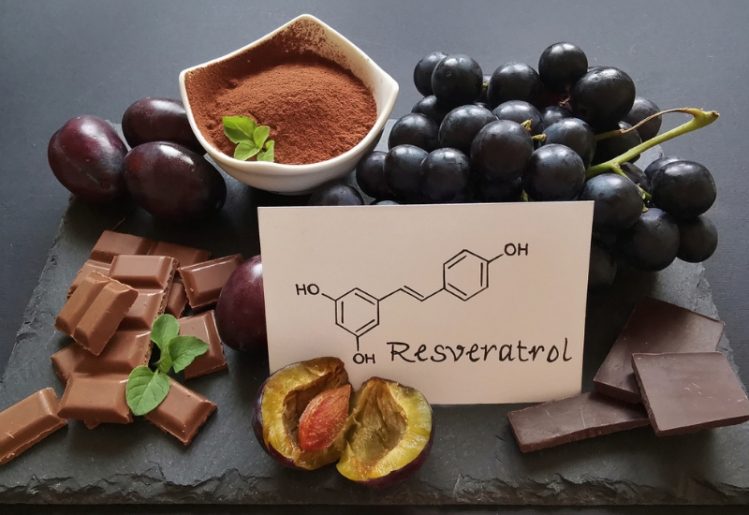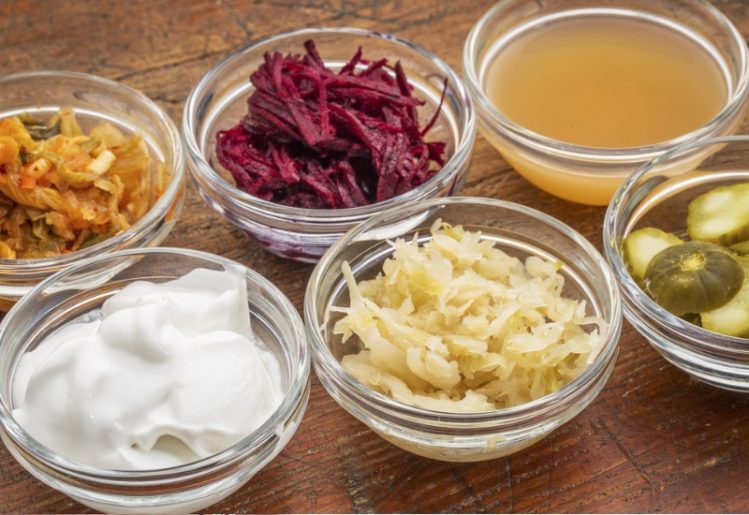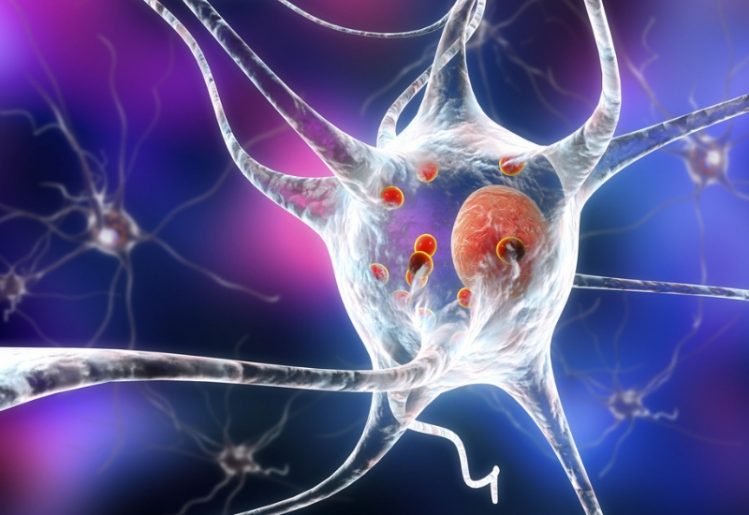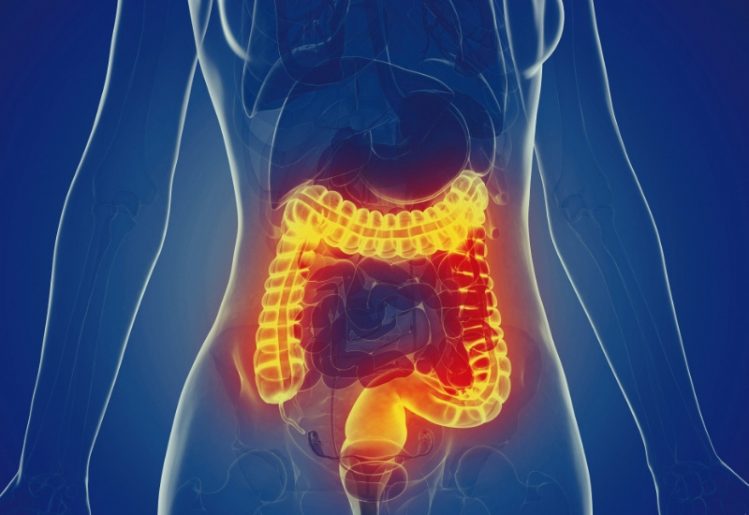Each of us has a community of microorganisms that thrive in an area of our large intestines known as the gut microbiome. This part of the gut serves as a home to trillions of bacteria and other microbes that interact with the rest of the body. While some bacteria are harmful and contributes to the development of disease and infection, other types of bacteria are actually beneficial. New research finds gut bacteria play a role in the relationship between stress and autoimmune disease, suggesting a healthier lifestyle may reduce risks.
The Gut Microbiome Plays an Important Role in Overall Health
 In a normal, healthy gut microbiome, there up to 1,000 different types of bacteria. This is important, because each strain serves a different function, affecting health in a unique way. For instance, Bifidobacteria is a type of bacteria that helps infants digest the sugars that are present in breast milk. Similarly, other types of bacteria help the body digest fiber more efficiently. Once digested the compounds in fiber help the body protect against heart disease, cancer and obesity.
In a normal, healthy gut microbiome, there up to 1,000 different types of bacteria. This is important, because each strain serves a different function, affecting health in a unique way. For instance, Bifidobacteria is a type of bacteria that helps infants digest the sugars that are present in breast milk. Similarly, other types of bacteria help the body digest fiber more efficiently. Once digested the compounds in fiber help the body protect against heart disease, cancer and obesity.
Research in recent years has found that the beneficial bacteria in the gut can strengthen the immune system and reduce the risks of a variety of medical conditions, such as type 2 diabetes and gastrointestinal disorders. Since the gut microbiome serves so many functions, it’s now considered to be an extra organ in the body, and continuing research is finding that it benefits health in more ways than previously known.
Stress and Autoimmune Disease Linked to Gut Microbiome
While there are several illnesses that can be categorized as autoimmune diseases, all of these develop as the result of a similar process. Essentially, the immune system erroneously identifies a group of cells, an organ or some other tissue in the body as a harmful bacteria or virus. This causes the immune system to turn on the body and attack healthy tissue. Some examples of these types of illnesses include rheumatoid arthritis, type 1 diabetes and lupus.
A study conducted at Israel’s Bar Ilan University found that there was a link between stress and autoimmune disease, which may involve microbial activity in the gut. Working with mice, they found that social stress caused an increase in the production of effector T helper cells. These cells are responsible for the immune system’s response to threats, indicating that stress may play a role in instigating autoimmune diseases.
The researchers also found an increase of two specific types of bacteria in the gut microbiomes of the mice. These bacteria, Bilophila and Dehalobacterium, are also found in higher amounts in the gut microbiomes of people with multiple sclerosis. The increase of these types of bacteria may have something to do with the alterations of genes in the gut which occur as a result of stress. The changes to the genes in the gut help bacteria travel to other parts of the body, thrive and grow, and relay signals to various organs in the body.
As a result of the genetic changes, the bacteria travel to the lymph nodes, where they can manipulate immune responses. Essentially, stress promotes changes to the genes in the gut, which, in turn, results in changes to the how the lymph nodes manage immune responses.
This increases the risk that an individual suffering from excess stress will ultimately develop autoimmune diseases. The opposite may also be true, suggesting that managing stress can help you keep your risk of autoimmune disorders low.
Tips for Managing Stress
Exercise
Physical activity is essential to your physical health, but it also has positive effects on your mind and emotions. By working out for a minimum of 30 minutes per day, you’ll experience a release of endorphins that will boost your mood and reduce stress hormones.
Reduce Substance Use
You may think that alcohol and drugs are making you feel better, but they’re actually exacerbating the problem. Once that euphoric feeling wears off, stressful feelings will return. This will prompt you to take more drugs or drink more alcohol. In addition to running the risk of developing an addiction, this cycle will cause you to feel more stressed over time.
Eat a Healthy Diet
The foods you eat will also impact your emotional health. Natural foods, such as fruits, vegetables, nuts and seeds, contain essential nutrients and vitamins that help your body and brain function. When your diet consists primarily of processed foods, you’re depriving your body of these nutrients. As a result, your brain won’t function as efficiently as it should, which can result in a more concentrated release of stress hormones.
Manage Time More Efficiently
 For many people, stress is increased by a lack of time to get everything accomplished. Even though you may have a lot on your plate, you can get through each day more easily by planning ahead. Just before bedtime each night, make a list of everything you need to get done on the following day and assign a block of time for each task. This will help to ensure you get everything done without feeling overly burdened.
For many people, stress is increased by a lack of time to get everything accomplished. Even though you may have a lot on your plate, you can get through each day more easily by planning ahead. Just before bedtime each night, make a list of everything you need to get done on the following day and assign a block of time for each task. This will help to ensure you get everything done without feeling overly burdened.
Relax
Each day, you should set aside some time to do something that relaxes you. Whether that’s meditating and practicing yoga, reading a good book or listening to your favorite podcast, you can choose any activity you enjoy. In addition to reducing stress levels and helping you stay healthy, taking this time to unwind will also help you sleep better.
 One of the systems that regulates your overall health is the gut microbiome, which is located in your large intestines and serves as a home to trillions of microbes. While some bacteria can be harmful, the microorganisms in your gut microbiome are helpful, assisting your body by regulating digestion, immune system functioning and dozens of other processes throughout the body. While this system functions on its own, you can help it to work optimally by ensuring it has a broad and diverse community of microbes.
One of the systems that regulates your overall health is the gut microbiome, which is located in your large intestines and serves as a home to trillions of microbes. While some bacteria can be harmful, the microorganisms in your gut microbiome are helpful, assisting your body by regulating digestion, immune system functioning and dozens of other processes throughout the body. While this system functions on its own, you can help it to work optimally by ensuring it has a broad and diverse community of microbes. Essentially, prebiotics work together with probiotics to ensure your gut microbiome is as diverse as possible. If you think you may not be getting enough prebiotics and probiotics in your diet, taking a
Essentially, prebiotics work together with probiotics to ensure your gut microbiome is as diverse as possible. If you think you may not be getting enough prebiotics and probiotics in your diet, taking a  Aside from the protective role it plays in grape plants, resveratrol contains antioxidants that are also extremely beneficial to human health. The high content of resveratrol in red wine delivers powerful antioxidants into the blood supply, which help to protect against free radicals in the body.
Aside from the protective role it plays in grape plants, resveratrol contains antioxidants that are also extremely beneficial to human health. The high content of resveratrol in red wine delivers powerful antioxidants into the blood supply, which help to protect against free radicals in the body. As we get older, we become more susceptible to conditions that can affect our ability to see well. Partial or complete vision loss can result from glaucoma, diabetic retinopathy, cataracts or macular degeneration. Since the antioxidants in red wine help to protect against oxidative stress, the inflammation that increases the risks of developing these conditions is also reduced. While it’s necessary to take other steps to protect your vision, moderate red wine consumption can also help.
As we get older, we become more susceptible to conditions that can affect our ability to see well. Partial or complete vision loss can result from glaucoma, diabetic retinopathy, cataracts or macular degeneration. Since the antioxidants in red wine help to protect against oxidative stress, the inflammation that increases the risks of developing these conditions is also reduced. While it’s necessary to take other steps to protect your vision, moderate red wine consumption can also help. Reservatrol is found naturally in red grapes, red wine, peanuts, pistachios, blueberries, raspberries and dark chocolate. The compound is most highly concentrated in the skin of red grapes. This polyphenol antioxidant is an antimicrobial compound produced by plants to protect against environmental challenges such as harsh climate changes and too much dangerous ultraviolet light. In recent years, researchers have discovered promising ways that resveratrol may slow down the aging process, as it offers the body a multitude of protections.
Reservatrol is found naturally in red grapes, red wine, peanuts, pistachios, blueberries, raspberries and dark chocolate. The compound is most highly concentrated in the skin of red grapes. This polyphenol antioxidant is an antimicrobial compound produced by plants to protect against environmental challenges such as harsh climate changes and too much dangerous ultraviolet light. In recent years, researchers have discovered promising ways that resveratrol may slow down the aging process, as it offers the body a multitude of protections. With so many benefits spread across many facets of physical and mental health, resveratrol deserves a prominent spot in everyone’s daily diet. Because many Western diets do not naturally include this compound, you may have to be purposeful about consuming it; you can find a high-quality resveratrol supplement online or at your local health food store.
With so many benefits spread across many facets of physical and mental health, resveratrol deserves a prominent spot in everyone’s daily diet. Because many Western diets do not naturally include this compound, you may have to be purposeful about consuming it; you can find a high-quality resveratrol supplement online or at your local health food store. Probiotics are beneficial bacteria that play a host of helpful roles in the human body. While there are hundreds of probiotic supplements on the market today, that wasn’t always the case; in the past, people had to rely on healthy diets to get a good supply of these beneficial forms of bacteria. In addition to modern supplements, probiotics are found in foods like sauerkraut, kimchi, kefir, tempeh and plain yogurt.
Probiotics are beneficial bacteria that play a host of helpful roles in the human body. While there are hundreds of probiotic supplements on the market today, that wasn’t always the case; in the past, people had to rely on healthy diets to get a good supply of these beneficial forms of bacteria. In addition to modern supplements, probiotics are found in foods like sauerkraut, kimchi, kefir, tempeh and plain yogurt. Plain yogurt is made from fermented milk, which means it’s
Plain yogurt is made from fermented milk, which means it’s  It’s believed that Parkinson’s is the result of low dopamine levels in the brain, which eventually causes nerve cells to die off. Dopamine has been identified as the neurotransmitter responsible for communicating messages that control coordination and physical movement. As neurotransmitter levels drop, the affected individual finds it more difficult to control their movements. They may also notice a stiffening of the muscles.
It’s believed that Parkinson’s is the result of low dopamine levels in the brain, which eventually causes nerve cells to die off. Dopamine has been identified as the neurotransmitter responsible for communicating messages that control coordination and physical movement. As neurotransmitter levels drop, the affected individual finds it more difficult to control their movements. They may also notice a stiffening of the muscles. Additional research has found that
Additional research has found that